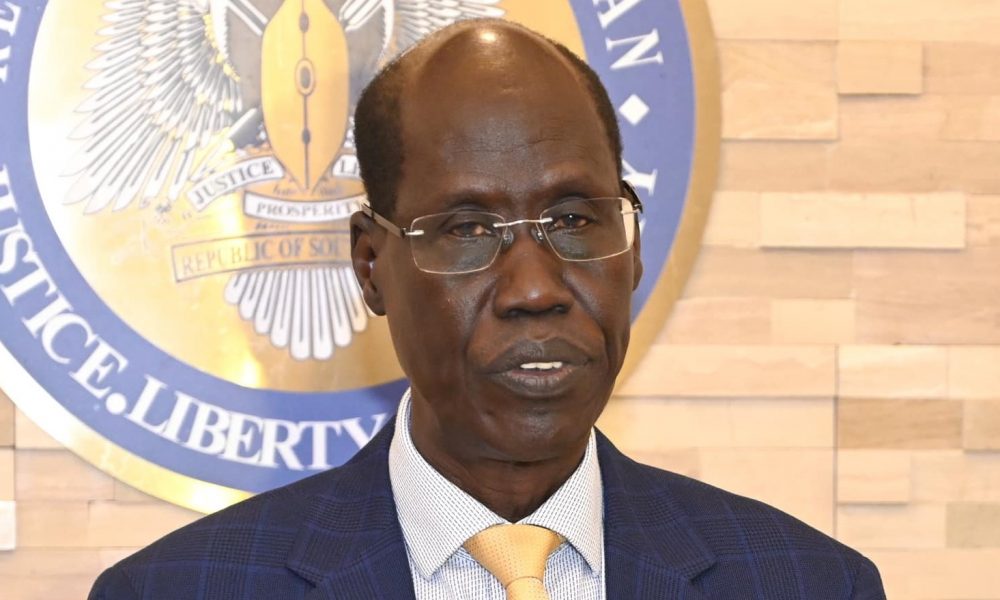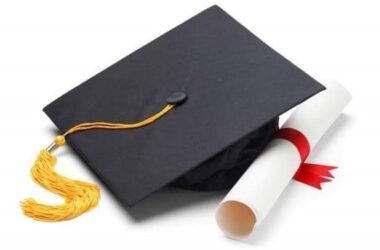By Taban Henry
The University of Juba has proposed an increase of tuition in which the least students will pay 100,000 SSP with an additional development fund of 100 US Dollars for all students to transform the infrastructure of the institution.
Earlier in 2019, the students at the University of Juba staged a peaceful demonstrating against the new rise in tuition fees.
The hike ranged from 50, 000 SSP and 86,000 SSP, and the increase came barely two years after the country’s parliament and the President rejected a similar recommendation by the University’s administration.
Speaking in an exclusive interview with No.1 Citizen Daily Newspaper yesterday, the Vice Chancellor of the University of Juba Professor John Akec said that the University has decided to increase the tuition fees and additional 100 US dollar for the development of the lecture halls.
He said the value that was being paid last year and this year been drastically lost, adding that the number of students has expanded of which the lecture halls are a bit too congested.
The VC said the strategy they did in the past to modify, upgrade buildings are really adding a lot of space so they are thinking of building new halls from the scrubs and to build new halls from the scrubs needs more money, to build new lecture halls to reduce the congestion in class.
“We need a lot of resources, to raise this resources without braking the backup, first of all you adjust it to inflation so those who are paying 45,000 last year and this year they are going to pay 100,000 SSP for all the colleges” VC John Akec said.
“And then we said the private students who are going to be admitted to most of the programs here are going to pay an average of 300 dollars a year and then medical students are going to pay 1000 US Dollars a year for the first years but final year students will pay 500 or equivalent, you know what we did is just the rate of the equivalent,” he explained.
Prof. Akec stressed that they wanted to raise enough resources which needs an average of 150 dollars that students should be paying per year citing that the 100 dollar they will impose on every student including the post graduate’s to pay annually wouldn’t be even enough.
“Now if you multiply it by 30,000 you will get something of 3 million dollars so that will help us,” he noted.
He explained that the idea will be that sum will be used for construction of lecture halls and that will be annually.
“We will review whether to increase or not but at the moment we want to be modest. Now it will bring a total contribution of students between 200 students and 300 average and that will be like 150 dollars per semester for us, to dedicate it for the whole year with that money is really a war for South Sudan,” he added.
The University of Juba Vice Chancellor stated that the general tuition for medical students was 100,000 SSP and that was for the previous year, those who were admitted by the ministry.
However he said for those who want to enroll privately this year specifically because the number required is too huge, they want to discourage people and also for them to manage the money seriously because they will be paying 1,000 dollars.
Akec ruled out people’s notion that the public university is charging huge amount of tuition fees to the students.
“We are not as expensive as wholly private but at the same time there must be a contribution from individuals at the moment the government only pays us salaries but operation, construction and development nothing”.
“We are only depending on this meager fees, so that is why we are asking people to increase that, so as they will be more and we are earmarking the 100 dollars to the inclusion of equipment, construction and we only have plans now and we wanted the contribution to be permanent and we shall be reviewing in terms of the economic situation,” Akec lamented.
He further stated that the universities are autonomous, responsible and they debate things adding that they have the senate of about 120 people that actually debate, comprising the health department, economists, lawyers and political scientists”.
The university administration said it didn’t consult the ministry of higher education but rather only looked at the market and adjusted tuition.
Meanwhile a student from the University of Juba who chose anonymity for sensitivity of the matter disagreed with the senate resolution to impose the 100 dollars so-called development fees.
He argued that according to the blue book of the University of Juba and any other university, tuition fees are not supposed to be increased on yearly basis. “All of us are for the development of the institution but we should act according to what the blue book says,” he noted.
“Now our tuition fees are increased on yearly basis that we cannot afford and when you go on the wall of professor Akec is comparing us with Makerere University, Ethiopia and other universities but we cannot become like Makerere overnight, it takes time to be like Makerere like when you see the University of Juba is not like the university that we knew some years back,” he argued.
The anonymous source stated that the university shouldn’t just impose tuition fees abruptly without looking at the impact of it adding that “this development fees is too much for us to pay, if some of us are still struggling to pay the tuition fees and the development fees which are more less the same.”
“It is a shock to us because we are still struggling to pay the current tuition fees, some of us are hustling so it is not good for the school fees to be increased on yearly bases. The impacts of this are very many which ranges from school dropout if you think that the tuition fees are so huge for you,” the student stressed.




